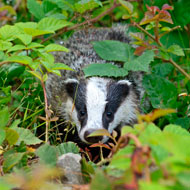TB update ‘leaves important questions answered’

The BVA is urging clarity on cull time frames, numbers and methodology.
Vets have responded to a government update on tuberculosis (TB), saying that it ’leaves important questions unanswered’.
Published on Wednesday (19 July) the update follows a consultation on licensed badger control, conducted at the beginning of the year.
But BVA president Gudrun Ravetz says that the announcement and supporting guidance miss out important information on the cull time frames, numbers and mid-cull review methodology.
‘We would urge clarity in each of these areas to ensure that the progress is made, enabling the application for Officially TB Free status, is not undermined,’ she said in a statement.
‘It is clear that badger population estimates have previously demonstrated considerable uncertainty and imprecision, but to help secure disease control benefits and prevent population extinction it is critical that as accurate as possible population estimates, using an evidence-based methodology, are obtained and made openly available in advance of a licence being granted.’
In the update, Defra minister George Eustice notes that the government has, this week, applied for officially TB-free status for the Low-Risk areas of England.
He also outlines further measures to help eradicate the disease from England, including a consultation on proposals to catch the disease in cattle as soon as possible and the re-commencement of the Badge Edge Vaccination scheme.
Together with the announcement, the government has also published responses to a consultation on badger control and its licensing guidance.
But the BVA queries whether the new guidance for cull licences provides the necessary clarity to ensure that such operations can effectively take place each year.
“Whilst badger culling in a targeted, effective and humane manner remains part of the Government's bTB strategy, BVA will continue to urge Government to use the targeted and humane method of cage trapping and shooting only - rather than the continued use of controlled shooting for badger control operations.”



 The BSAVA has opened submissions for the BSAVA Clinical Research Abstracts 2026.
The BSAVA has opened submissions for the BSAVA Clinical Research Abstracts 2026.